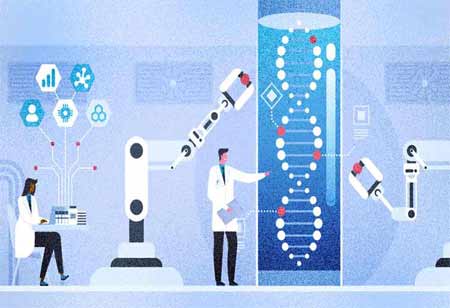Thank you for Subscribing to Healthcare Business Review Weekly Brief
Be first to read the latest tech news, Industry Leader's Insights, and CIO interviews of medium and large enterprises exclusively from Healthcare Business Review
The Real-World Impact of Technology in Healthcare
The healthcare sector is fueled by technological progress, innovative therapies, and evolving patient expectations.

By
Healthcare Business Review | Friday, May 10, 2024
Stay ahead of the industry with exclusive feature stories on the top companies, expert insights and the latest news delivered straight to your inbox. Subscribe today.
Technological advancements like telemedicine, AI, wearables, and augmented reality are revolutionizing the healthcare sector, enhancing access, efficiency, and diagnostic accuracy, thereby promoting healthier communities.
FREMONT, CA: The healthcare sector is fueled by technological progress, innovative therapies, and evolving patient expectations. The landscape of healthcare has seen profound shifts in recent decades, with a trajectory of change that shows no signs of decelerating. Technology is central to this transformative journey, propelling the future of healthcare.
Amid this technological evolution and healthcare's metamorphosis, concerns may arise regarding robots' potential displacement of healthcare roles, the ascendancy of artificial intelligence (AI), and the risks of virtual reality addiction. However, these apprehensions primarily stem from uncertainties about what lies ahead. Despite these concerns, the forward march of technology cannot be halted, and its integration into diverse aspects of human lives is inevitable.
Telemedicine
Telemedicine is a pivotal advancement in modern healthcare, fundamentally reshaping the interaction between patients and healthcare providers. Technology integration has facilitated convenient access to healthcare services, empowering individuals to seek medical assistance from their homes. This evolution has been significantly catalyzed by the pandemic, underscoring the unparalleled convenience and accessibility offered by virtual appointments. Beyond enhancing healthcare delivery efficiency, telemedicine is critical in reducing exposure to infectious diseases by negating the necessity for physical visits.
AI And Machine Learning
Harnessing AI and ML capabilities, healthcare providers can effectively utilize vast amounts of medical data to make informed, data-driven decisions. These advanced technologies empower the development of personalized treatment plans, improve diagnostics, and facilitate early detection of diseases. By enhancing diagnostic accuracy and enabling proactive interventions, AI and ML significantly elevate the standard of patient care, resulting in improved outcomes and decreased misdiagnoses.
Wearable Technology
Empowering individuals to manage their health proactively, wearable devices such as smartwatches and fitness trackers play a crucial role by offering real-time health monitoring and actionable insights. They enable users to track fitness goals and monitor vital signs like heart rate, oxygen levels, and glucose levels, thereby providing a comprehensive approach to wellness management.






